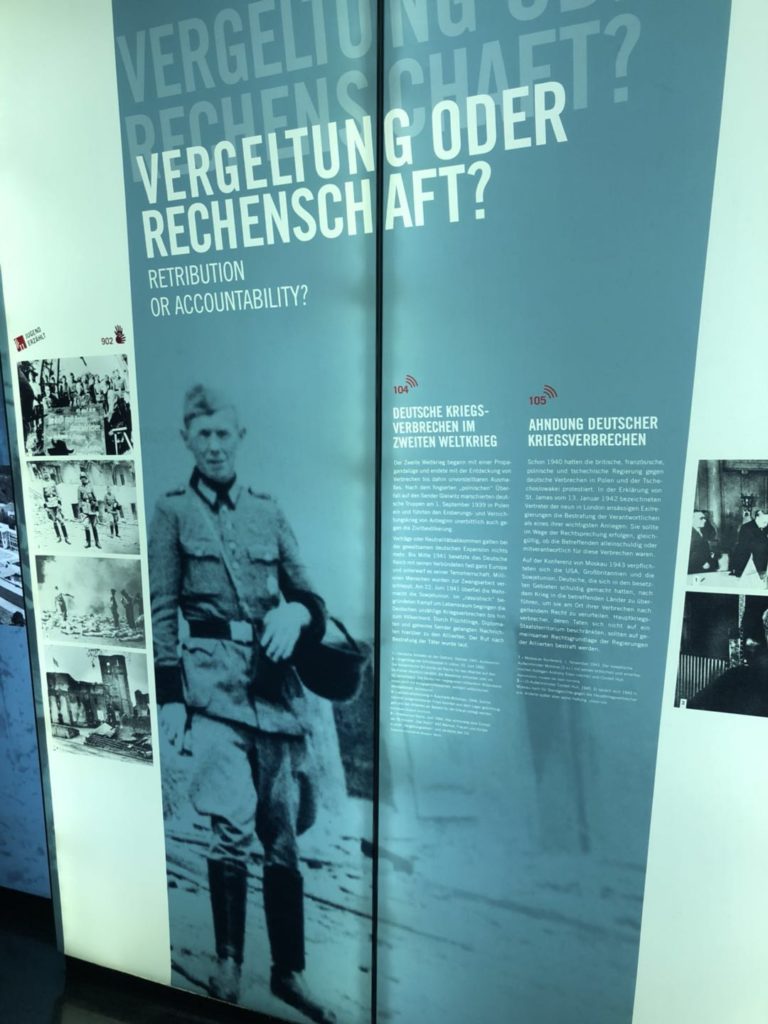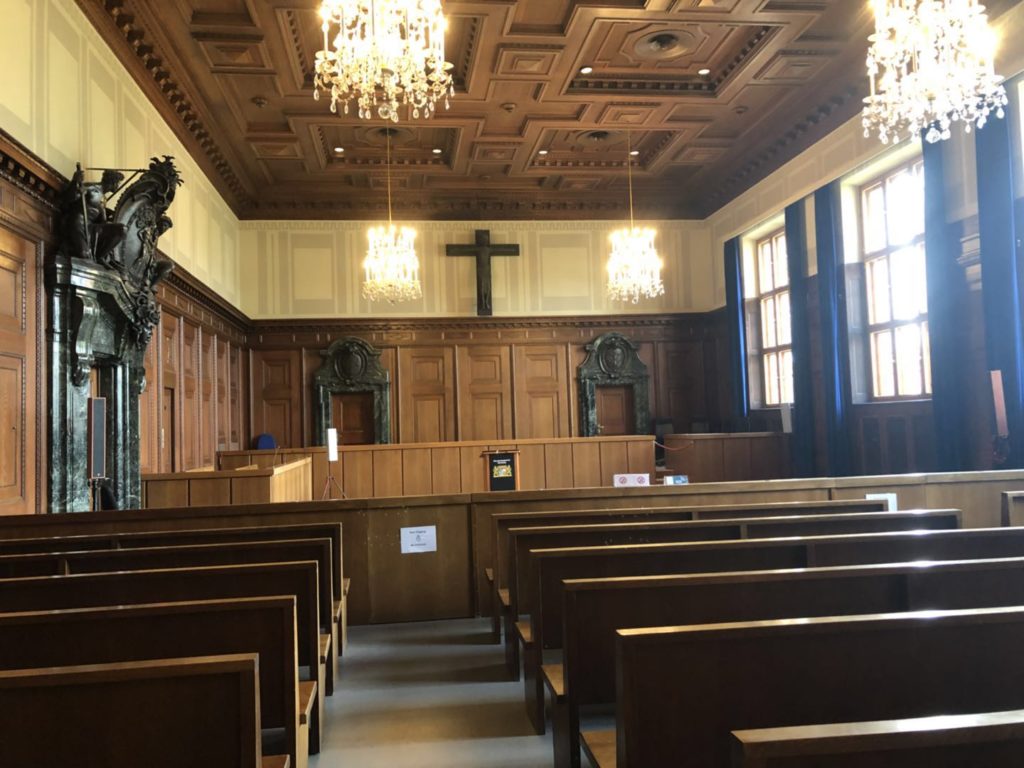On Sunday morning, I set out to find the Memorium Nuremberg Trials in the Palace of Justice. The trials were most notable for the prosecution of prominent members of Nazi Germany, who planned and carried out in the Holocaust and other war crimes. This important trial was later used by the United Nations for the creation of the International Criminal Court and development of international jurisprudence. In the “Courtroom 600,” where the trials took place, I envisioned myself sitting among the audiences in November 1945, and 24 major Nazis like Hermann Göring sat on the criminal seats of the left side. My heart was beating fast like all the journalists in presence, as this was the first time the Nazi’s crimes were revealed to the whole world. In front of me, the American prosecutor Robert Jackson gave the passionate opening statement:
“The privilege of opening the first trial in history for crimes against the peace of the world imposes a grave responsibility. The wrongs which we seek to condemn and punish have been so calculated, so malignant, and so devastating, that civilization cannot tolerate their being ignored, because it cannot survive their being repeated. That four great nations, flushed with victory and stung with injury stay the hand of vengeance and voluntarily submit their captive enemies to the judgment of the law is one of the most significant tributes that Power has ever paid to Reason.”
The tribute that power has paid to reason. For me, this is the definition of justice. While I was impressed by the fairness and openness of the whole judicial process, some Germans at that time still doubted whether this trial is only “victor’s justice.” Considering the magnitude and horribleness of the crimes, emotionally I could not help supporting the Allies and condemning the Nazi, but I want to study the legal process in details later.
Notably, as the German TV-series “Unser Vater, Unsere Mutter” shows, after the war, many Nazi officers actually escaped the punishment and continued to live a normal life with their buried guilt because of the cold war and domestic protection. Though disappointed by the fact, I do not think those people could escape the trial of their conscience. It also reminds me of Hannah Arendt’s theory “banality of the evil.” While the ex-Nazis might have argued that they had only been following the orders, their thoughtlessness could not be an excuse for the evil they did. To be a conscientious human being requires an independent mind to tell right from wrong instead of obeying the authority. Acquiescing to an evil institution is no different than planning the evil itself.
During my visit, I met a group of German soldiers and was glad to see the anti-violence education as part of the army’s agenda. It was a heavy exhibition, but I learned so much from it. Wherever I go, the messages that Nürnberg conveys will always be with me.

